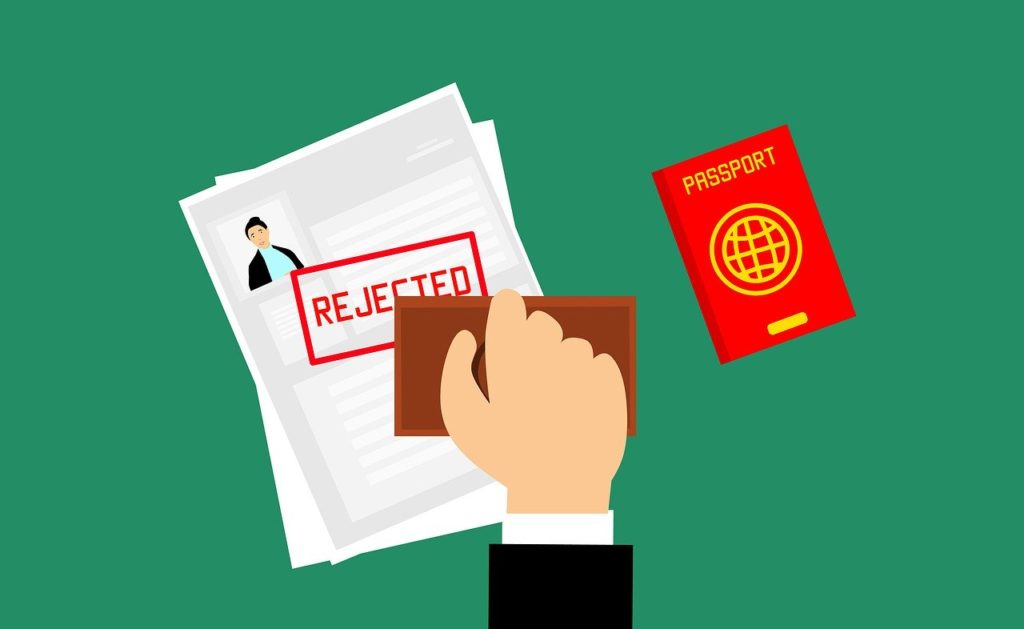Studying in the US coould be a dream come true, but it comes with certain rules. So, if you have applied for F1 visa, you are primarily a student and you have to follow the rules by the book. Regular attendance and good progress toward the completion of the course are some of the pre-requisites for academic excellence.
However, studying here could be an expensive affair. Even with family support, you may have to earn a few dollars extra to meet your expenses. The possibilities with an F-1 visa, however, are bleak, but not impossible.
Rules for F-1 visa applicants to ensure that their Study Visa does not get Rejected
Immigrant students have to follow the rule book. The hours per week, place of employment, type of employment all have to be considered before being approved for the profile. According to the rulebook, a student can work on-campus if he/she is directly hired by the institute. You can work with a commercial entity in the campus, but that should be directly serving the students on-campus.
What leads to an employment violation by International Students that can lead to their deportation?
If the students violate the F-1 students’ regulations for employment, they are immediately thrown out of the F-1 student visa ambit and deported in some cases. Once that has been done, you would require to apply for reinstatement to F-1 status, which may not be possible in many cases.
- F-1 students are allowed to work only on-campus, only if they are able to maintain their regular working hours and are making good progress in studies.
- For students working anywhere else, one would require special work permission from either the designated student’s officer or the U.S Citizenship and Immigration Services.
- You are allowed to work no more than 20 hours per week during school term and 40 hours per week during holiday breaks and vacations.
The 60-day grace period at the end of the permitted stay is just for touring the US. No study or employment is allowed during this period. - It is important to ensure that the 60 days are counted correctly
- The grace period does not start on the day of your graduation ceremony, but on the day you completed your final degree.
Any degree of violation of Student Visa rules by Student could be subject to culpable punishment of its own accord and lead to deportation of Student.
So, to consider the a few more possibilities of employment violation:
- One has to work directly with the services of the school campus, if one chooses to do so
- Working with a commercial outlet inside the school campus is not included, unless it is serving the students directly.
- As per the regulation, “[e]mployment with on-site commercial firms, such as a construction company building a school building, which do not provide direct student services is not deemed on-campus employment . . .”
-
If you mistakenly get employed by a commercial entity, located inside the campus but does not come under the “direct-student service” ambit, speak to the DSO immediately.
Related Read- https://www.canadaupdates.com/2019/07/08/how-is-life-after-the-student-visa-is-expired-benefits-of-work-visas-what-are-the-challenges-faced-by-the-candidates/
Rules for reinstatement once Notice for termination of Student Visa is received by a Student
Say for example, you have been penalized by the government and are awaiting reinstatement, you have to stop all work. It must be remembered that you are not entitled to apply for any other F-1 benefit such as Form 1-20 extension or either CPT or OPT work authorization.
Please note that you could ask the DSO for help in the reinstatement process. You must also know that you have to apply for reinstatement within 5 months of the event that led to your employment violation. If you have not applied for reinstatement within 5 months of the event or if the USCIS denies the reinstatement application, it is best to consult an immigration attorney to enquire about your options of getting back on track.
It must always be kept in mind that whatever you do, the DSO should be kept in the loop. If you begin working without authorization and you get it later, the time period when you worked without authorization is still illegal employment. Even working without permission on the campus of a university you attended earlier is illegal employment.
The repercussions of Cancellation of Student Visa and Deportation of Student
Penalizing would mean you have been banned to live, work or visit the United States now and in the future. There is another side to the F-1 visa. As soon as you engage in illegal employment, you may be found to be unlawfully present in the US. If the days of unlawful presence accounts for 180 days, you will be subject to a 3-year bar on re-entry once you leave the US. The number of years of ban increases with the number of months you have spent illegally in US.

